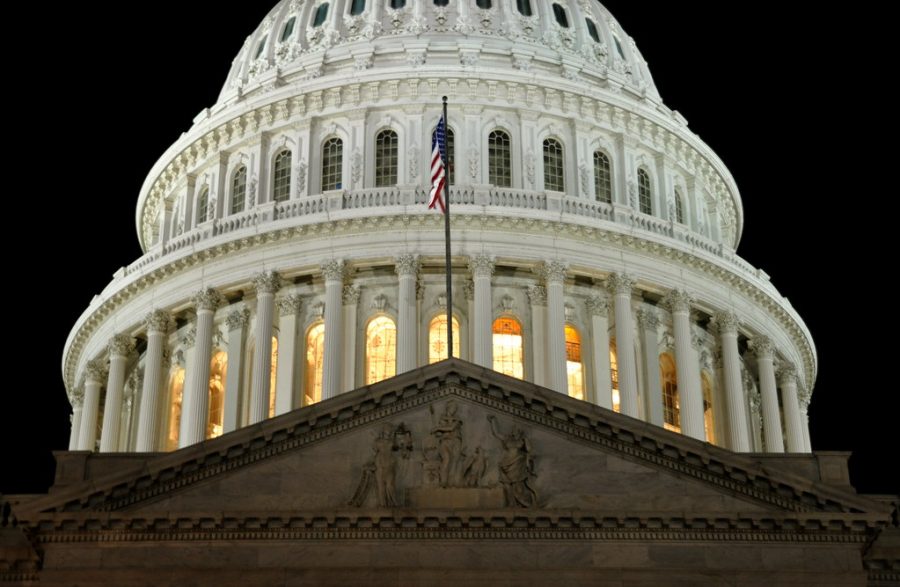The Stimulus Package
Everything you need to know about the state of Coronavirus relief
Hopes for a bipartisan stimulus package arriving before the Presidential election on Nov. 3 stalled as the pandemic continues to disrupt daily life and the economy worsens. Both sides of the aisle, Democrats and Republicans, offered their own versions of stimulus packages, but each has been shot down by the opposing party.
Democrats are pushing for a much larger relief bill than the Republicans are willing to spend. The House of Representatives passed a $2.2 trillion relief bill on Oct. 2 that aimed to provide almost all Americans with a second stimulus check of $1,200 per taxpayer and $500 per dependent. The relief bill also promised $436 billion in aid for funding local and state governments across the country, and for the acquiring of $75 billion more in funds for coronavirus testing and contact-tracing endeavors.
The relief package was quickly struck down by the Republicans in the Senate, however, who are in favor of a much smaller stimulus bill consisting of only $500 billion in funding for schools, the expansion of unemployment benefits, and money for a second round of the Paycheck Protection Program.
Senate Majority Leader, Mitch McConnell (R-Ky), knocked Democrats for the stalemate, stating that there is still time to pass the bill before the election if “Democrats do not obstruct this legislation.”
Democrats have accused Republicans in the Senate for prioritizing the nomination of Amy Coney Barrett to the Supreme Court instead of working with the Democrats to provide a bipartisan relief bill.
The Trump Administration, on the other hand, pushed for a separate stimulus package of $1.8 trillion in aid, although this was rejected by House Democrats and was not popular with Republicans in the Senate. President Trump tweeted out on Oct. 13, “STIMULUS! Go big or go home!!!”
Speaker of the House, Nancy Pelosi (D-Ca), commented on the Trump Administration’s proposal, stating that the package “amounted to one step forward, two steps back.”
Gregory Daco, the chief U.S. economist at Oxford, estimates that there are “…over 20 million individuals still claiming unemployment benefits [in the U.S.]…”
On top of that grim number, the United States still faces a 30-35% chance of dipping back down into a recession, according to the S&P report. If a deal on a stimulus bill cannot be reached before the Presidential election, these numbers could grow even worse.
The Senate is expected to vote this week on the Republican’s proposed $500 billion stimulus bill, but the plan does not include another round of stimulus checks. Senator McConnell released a statement on Saturday his intentions for the stimulus package.
“Nobody thinks this $500B+ proposal would resolve every problem forever,” said McConnell. “It would deliver huge amounts of additional help to workers and families right now while Washington keeps arguing over the rest.”


